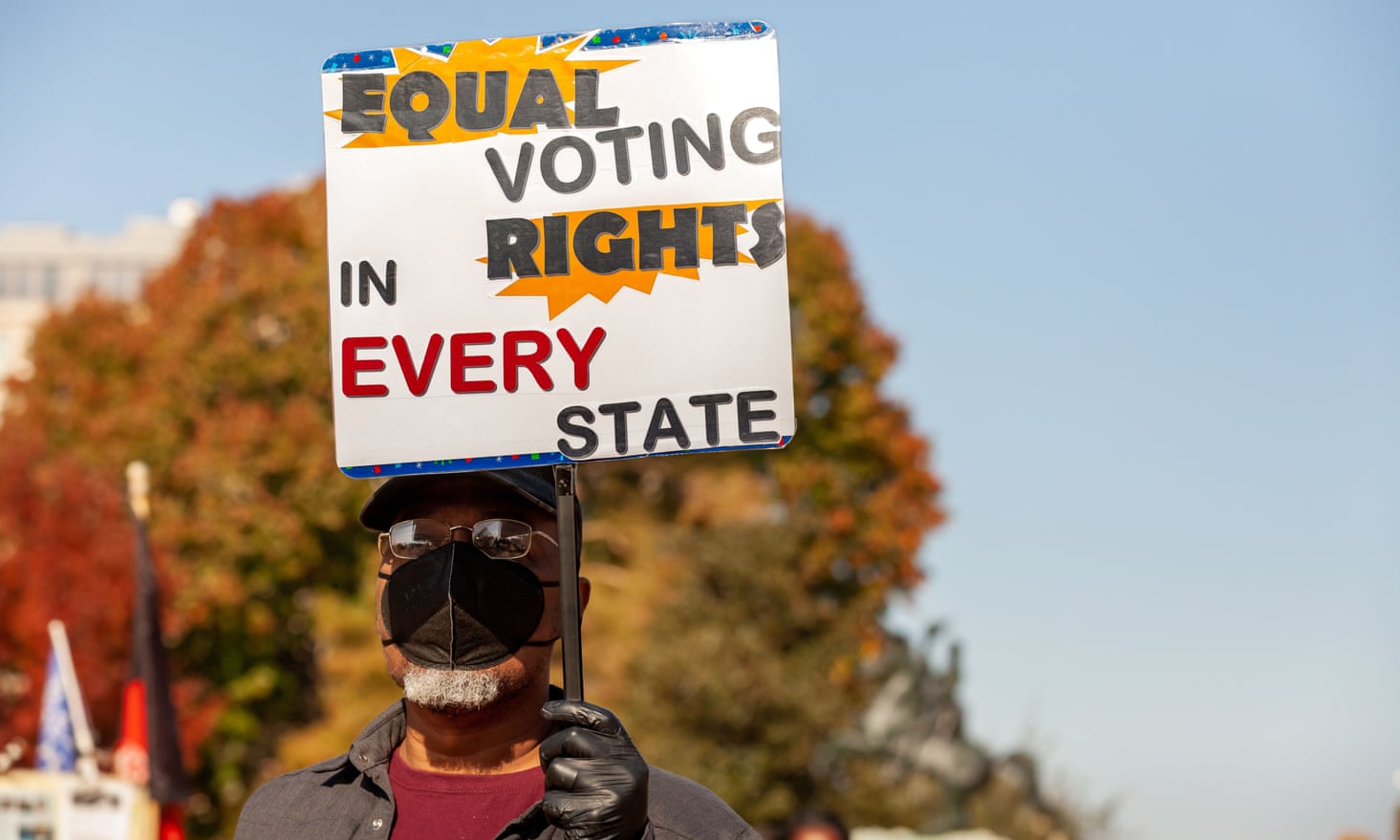Court rules that only US government can sue to enforce Voting Rights Act
Shock ruling from Republican-appointed appeals court prevents outside groups or citizens seeking to enforce voting rights lawAbout this content
Rachel Leingang
Mon 20 Nov 2023 15.10 EST

Voting rights groups expect the ruling to be appealed in the US supreme court. Photograph: Allison Bailey/REX/Shutterstock
A federal appeals court shocked voting rights groups on Monday with a ruling that only the US government, not outside groups or citizens, could sue to enforce the Voting Rights Act’s provisions.
The civil rights law, which outlaws racial discrimination as it relates to voting, has typically been enforced by lawsuits from these groups, not by the government itself. Now that the Republican-appointed eighth circuit court of appeals has made the ruling by 2-1, this “private right of action” to enforce Section 2 of the law is called into question.
The ruling stemmed from a case brought by the Arkansas State Conference NAACP and Arkansas Public Policy Panel over new maps created during redistricting that the two groups allege diluted the voting power of Black voters in the state.
While courts at all levels have allowed private claims seeking to enforce the voting rights law for decades, this is an “assumption that rests of flimsy footing”, the opinion written by Judge David Stras, who was appointed by Donald Trump, said. The ruling dissected the law itself, finding it did not include specific language that allows anyone aside from the attorney general to bring enforcement action.
In a dissenting opinion, Chief Judge Lavenski Smith said that, though the courts may not have directly addressed the idea of private parties trying to enforce this law, it has repeatedly heard these cases, so it would follow that “existing precedent that permits citizens to seek a judicial remedy”.
The ruling is not simply an esoteric question of law: it would dismantle the primary mechanism voting rights groups use to protect against racial discrimination in voting, often in the form of lawsuits challenging electoral maps.
Voting rights groups expect the ruling will be appealed to the US supreme court. The eighth circuit ruling applies to the states the circuit court covers: Arkansas, Iowa, Minnesota, Missouri, Nebraska, North Dakota and South Dakota.
Wendy Weiser, the vice-president for democracy at the Brennan Center for Justice, called the decision “radical” and wrote on X that it was “deeply wrong, and it goes against decades of precedent and practice”.


